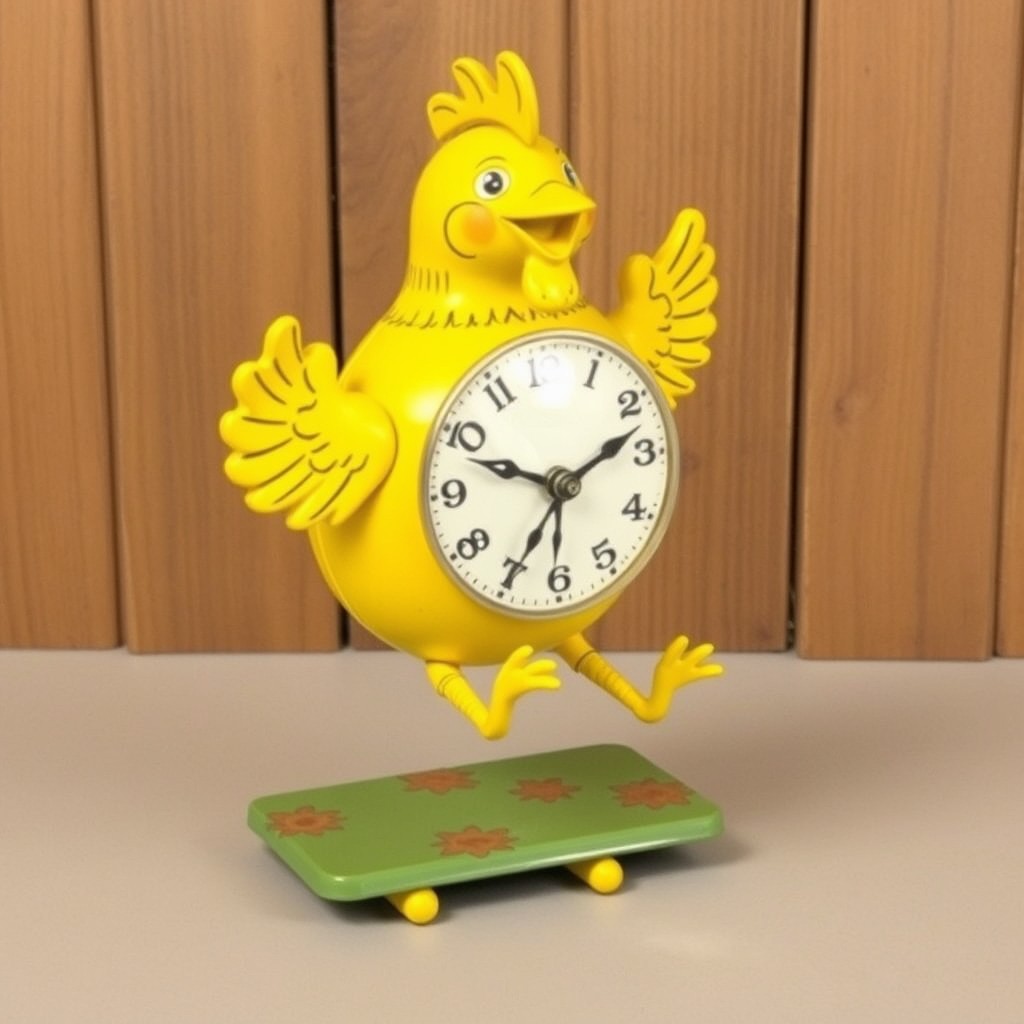Yellow Jumping Chicken — Expert Review
Our in-depth look at the iconic plush clockwork chicken: mechanics, construction, history, and real-world collector value.

Performance & Feel
The mechanism delivers a lively, repeatable hop-walk. A healthy mainspring runs ~2–3 minutes on a gentle wind. Sound profile is a soft tick with a pleasant cam “pulse”—no grinding or harsh scrape in well-kept examples.
Construction Quality
Under the plush, you’ll find cleanly stamped plates and a simple but durable gear train. Stitching around neck/wings tends to be tight; thread tone often slightly warmer than the plush. Authentic wear shows at edges and the key aperture—not randomly across high surfaces.
User Experience
It charms immediately: the cadence, the bounce, the bright silhouette. For demos, a smooth tabletop helps maintain forward bias; felt cloth will dampen the stride.
History & Context
Born in the post-war “golden age” of clockwork, the jumping chicken reflects clever, affordable engineering aimed at delight and durability. Designs varied by maker, but the signature hop-and-amble motion remained a crowd-pleaser from Europe to the US.
Why It Endures
It’s approachable mechanics you can hear and feel—perfect for teaching energy storage, gearing, and cams. Add plush warmth and you get a toy that bridges engineering and emotion.
How It Compares
Yellow Jumping Chicken
- • Distinct hop-walk with steady cadence
- • Plush comfort + visible mechanical charm
- • Reliable, serviceable movement
- • Broad appeal to collectors & educators
Other Wind-Up Animals
- • Motion varies (scuttle, peck, roll)
- • More tin/litho, less plush warmth
- • Quality varies widely by maker
- • Niche appeal by species/theme
The chicken’s balance of friendly form and demonstrable mechanics makes it a standout teaching piece and display favorite.
Care Snapshot
Wind gently every 2–3 months; never to the hard stop. Keep plush dry and dusted; avoid solvents. Store at 18–22 °C and 40–55% RH, away from direct sun.
Expert Verdict
A joyous blend of mid-century engineering and plush personality. For collectors, target original finish, correct key, and smooth cadence. For educators, it’s a perfect, hands-on lesson in cams and energy storage.
